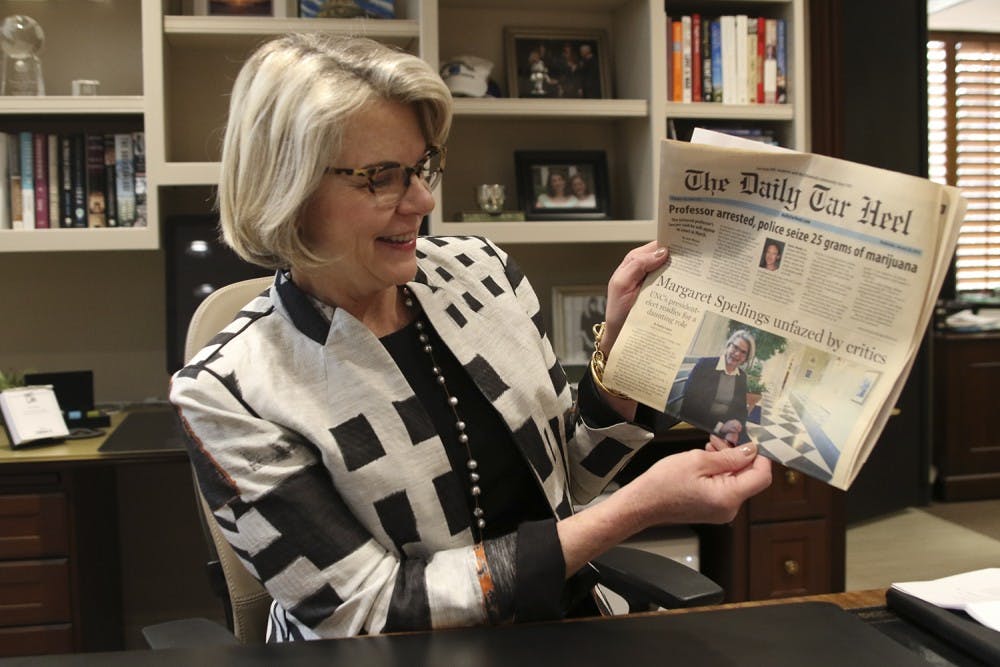Margaret Spellings’ time as the UNC-system president — in charge of 17 campuses across the state — has been marked by protest, controversy and political speech. Senior writer Natalie Short talked to Spellings about her previous experiences and her past year in office.
The Daily Tar Heel: How has your past experience in education and government informed your current role?
Margaret Spellings: I feel like everything that I’ve done in my career has added up to being prepared and ready to lead the University. Whether it’s having attended a large public university in Houston, that frankly reminds me a whole lot of UNC-Charlotte, or my work at the state legislative level in Texas and at the federal level both at the White House and at the U.S. Department of Education in Washington, it’s just kind of a combo platter of experience that really has brought me here today. I’m just thrilled to be here, because we all know that without education we don’t live in a very thriving, growing place, and as individuals it’s the key to our own long-term success.
DTH: What are some of the things that you’ve done for the University system in the past year that you see as highlights?
MS: I would say the strategic plan that the board unanimously adopted in January, that work was developed through a process of town hall meetings on each and every one of the campuses, an online survey that engendered support and input from thousands of people, active involvement from the faculty and staff, of course my team here, folks around the legislature — it was a very multi-stakeholder process that wrought a very concise but powerful strategic plan that is gonna guide our work over the next five years. Around that, we made a strategic legislative request — the budget’s supposed to come out (Monday) — so I’ll tell you how we did after we see it. But it also serves as a guiding light for the institutions, and they can develop their own strategic plan within this framework.
DTH: Could you explain the strategic plan a bit more specifically?
MS: What we’re doing right now is negotiating institutional-level agreements that everyone can see what part of those strategic goals that they are going to tackle uniquely. Obviously we have 17 institutions that are all very different and so those are a process. We expect to finalize those by the end of the summer, and so our Year 1 will be the ‘17-’18 school year, and it’s a five year plan.
DTH: Was it your own idea to bring in the Boston Consulting Group to evaluate the UNC system?
MS: That’s again, kind of, what you would expect senior level managers or executives to do. Right after I was named, and before I arrived on the scene, I raised some private funds to get the Boston Consulting Group to come and take a look under the hood, see what we did well, where we could improve, where we lacked the right talents, etc. They made some recommendations, I acted on them, for the most part. Any organization is organic, so you’re always reacting to the times. That’s another thing that I would say is an achievement — reducing the size of general administration but also emphasizing the things that are most important and of course those are the things that are derived around the strategic plan.




